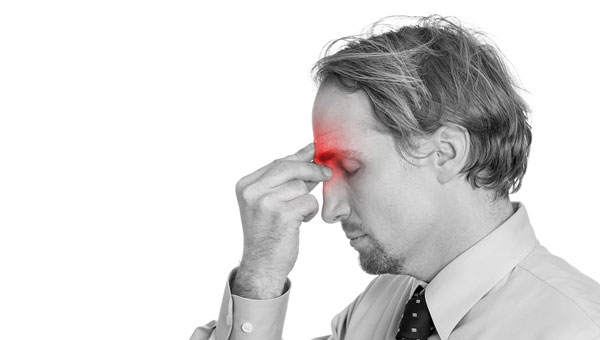Scuba diving, swimming, air travel and other activities during which air pressure changes may trigger the sinusitis headache, requiring an appropriate treatment. Medication given for sinusitis headache has twofold role: treating the sinus infection and relieving the sinus symptoms. Doctors may prescribe antibiotics for less than two weeks to alleviate the infection. Decongestants or antihistamines may be administered for short period to get rid of the symptoms. However, decongestants may worsen your headache if it is not because of sinusitis. Thus, do not take any medicine without consulting your doctor. Decongestants constrict headache causing blood vessels, relieving the symptoms. However, decongestants are addictive.
Pain relievers (analgesics) are a part of the sinusitis headache therapy. If the pain relievers do not reduce the pain, corticosteroids are administered to bring down the inflammation. If an allergen is causing the sinus disorder, allergy medication is required.
Avoid over use of decongestants or analgesics, as overuse will lead to rebound headache.
Nasal sprays with steroids and antihistamines may be useful to treat headaches associated with allergic sinusitis.
Vasoconstrictors may be given to reduce nasal congestion.
Detailed medical examination and review of medical history is required to treat the headache. Doctor may advise for CT, MRI scans or X-rays for precise diagnosis. Physical examination of the nose and ear may help in identifying the signs.
If prescription is not followed properly, the headache may persist.
Do not self-diagnose and self-treat. However, adequate intake of water and other fluids ensures proper drainage of secretions. Alternate cold and hot compresses may give some relief. Nasal irrigation helps in clearing the congestion. Consult the physician if headache persists. If symptoms last for more than 10 days, visit a doctor.
To reduce sinus headache, inflammation of the sinuses and swelling of the mucus membrane should be reduced, and drainage of materials trapped in mucous area should be improved. Breathe in humidified air to encourage drainage. With improved drainage and reduced inflammation, headache will subside.
If headache is not treated in timely manner and properly, some complications may develop. Untreated sinus infection may seep into the walls of the sinuses and spread in the adjacent areas, including the orbit. As a result redness, swelling and pain of the eyes may occur. The infection may enter into the blood vessels in the surrounding areas and produce blood clots and inflammation.






